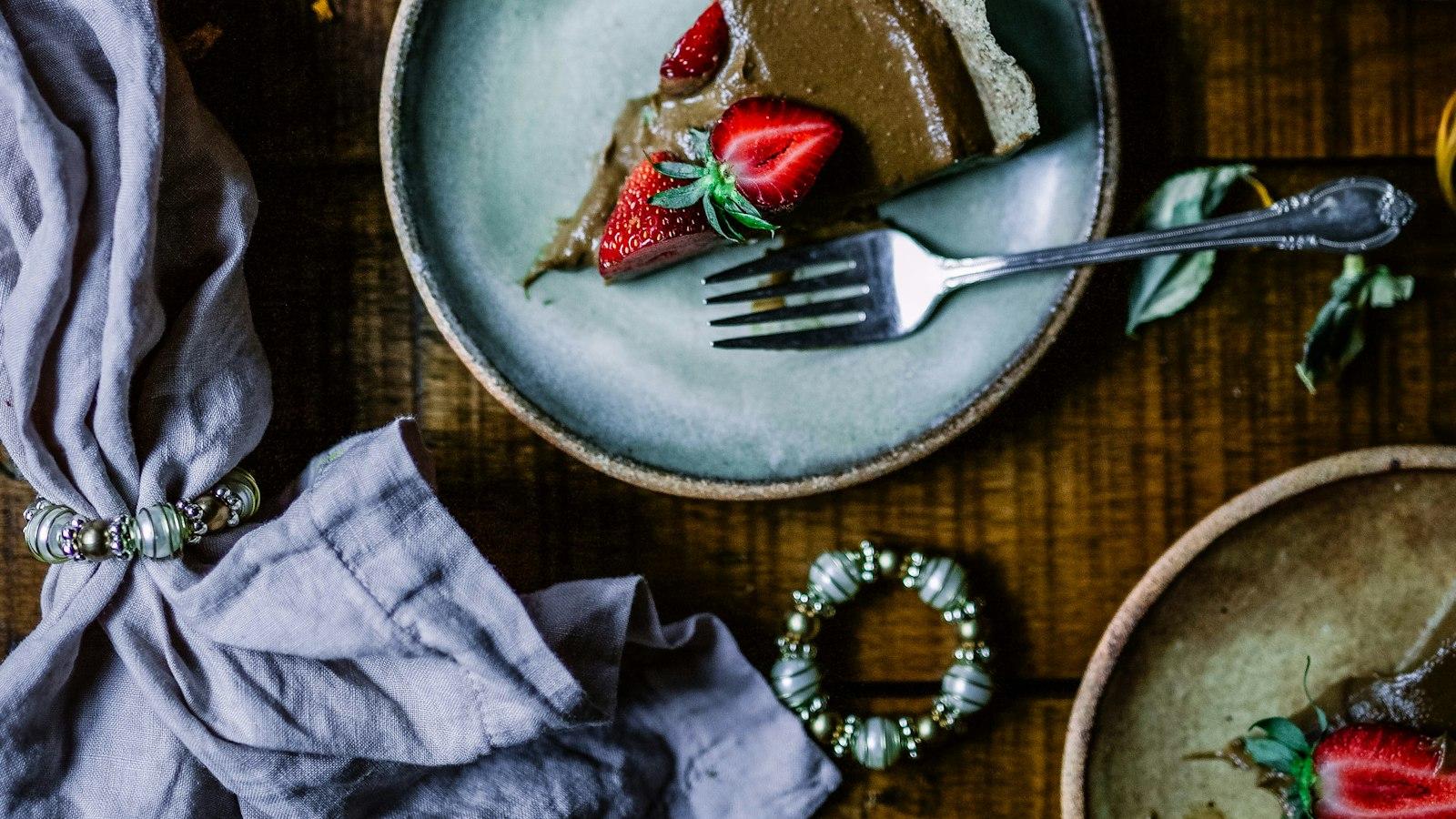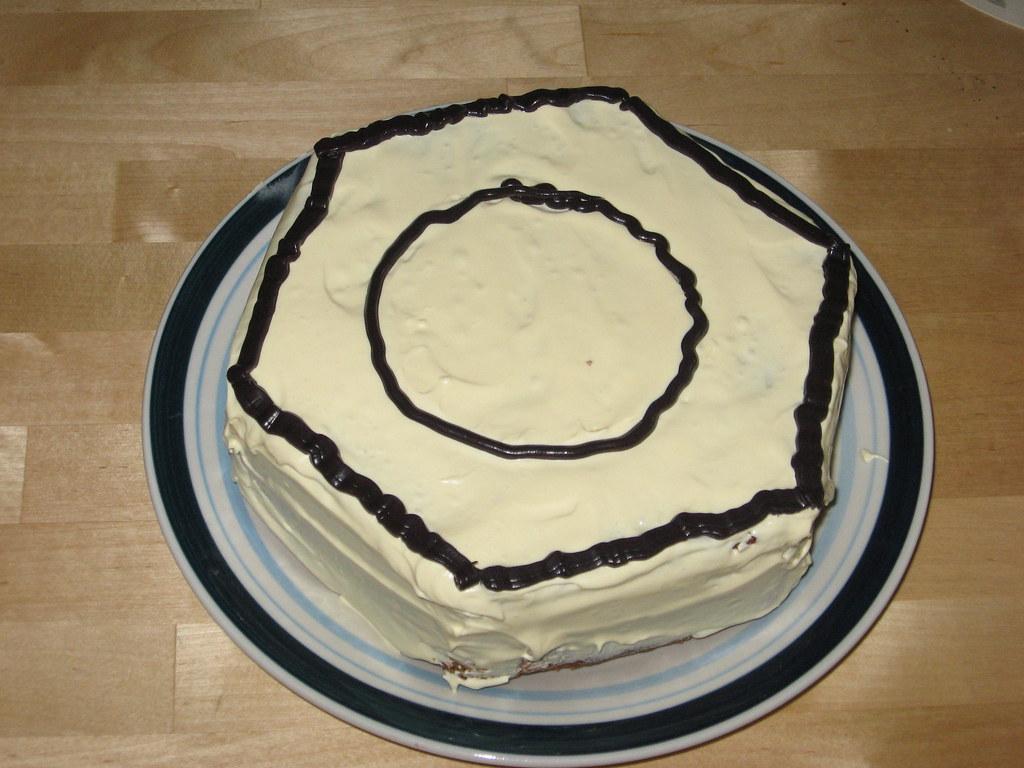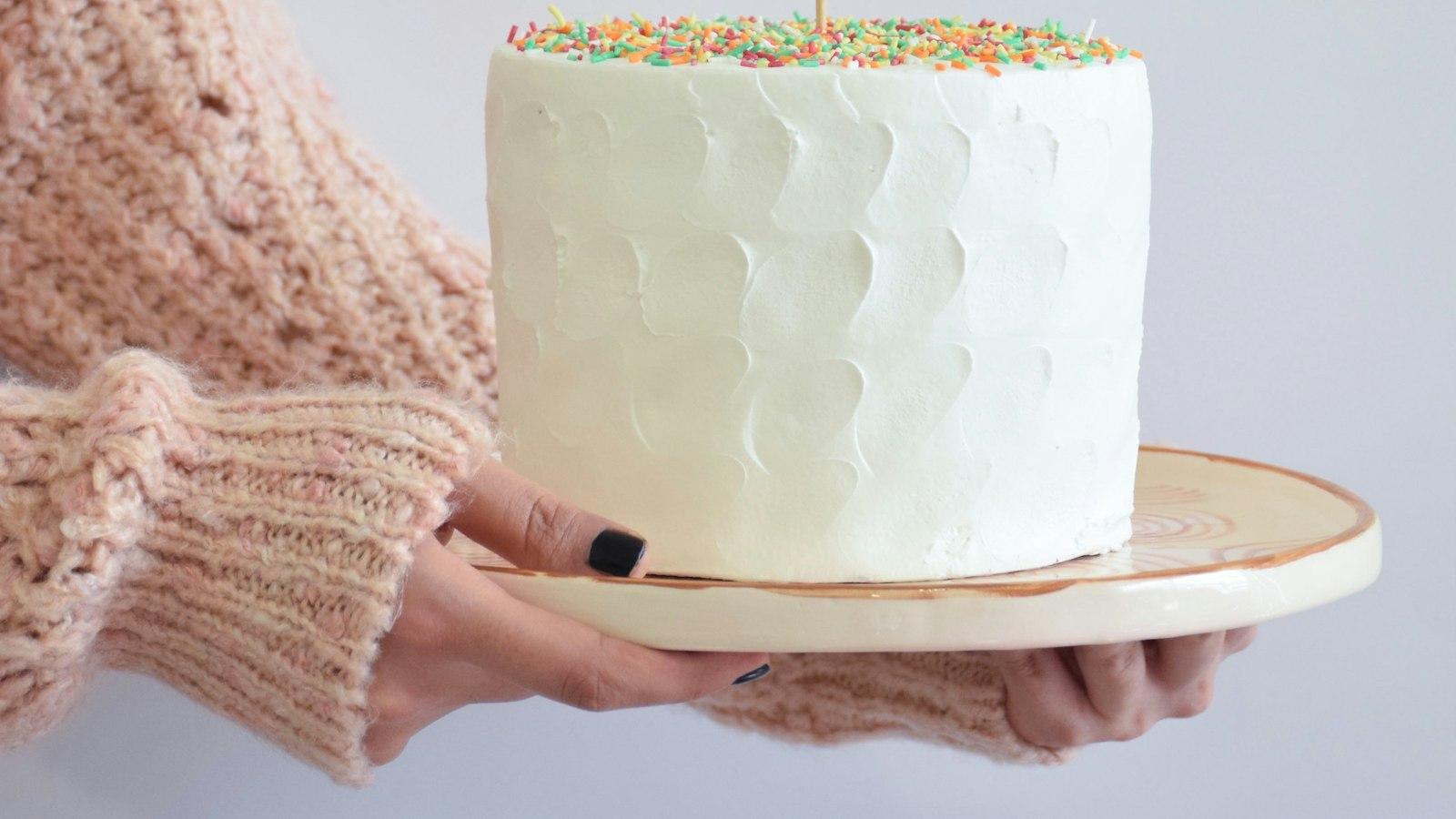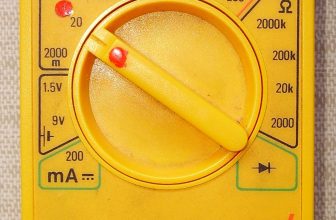
Originally posted 2024-01-18 23:16:28.
Cake rings are a versatile and essential tool for bakers of all skill levels. Whether you are a professional pastry chef or a novice home baker, learning how to use cake rings can elevate your dessert-making game to new heights. These metal bands, with their adjustable size and sturdy construction, provide a solid foundation for creating perfectly sculpted cakes, mousses, and other delightful treats. In this article, we will guide you through the ins and outs of using cake rings, from assembling and preparing them to achieving flawless results. So, if you are ready to take your baking skills up a notch, read on to master the art of utilizing cake rings like a pro.
Introduction to Cake Rings
Cake rings are versatile tools that every baker should have in their arsenal. These metal rings, usually made of stainless steel, are used to shape and mold cakes, creating beautiful and professional-looking desserts. In this post, we will explore the various ways to use cake rings and provide step-by-step instructions for achieving picture-perfect results.
One of the primary uses of cake rings is for creating layered cakes. By placing the ring on a cake board or a serving platter, you can build layers of cake and filling, resulting in a stunning and impressive dessert. To begin, place the cake ring on your desired surface and line it with a strip of acetate or parchment paper. This will help prevent the cake from sticking to the sides of the ring. Then, add your first layer of cake, followed by a layer of filling. Repeat this process until all the layers are stacked, making sure to press each layer firmly to ensure stability. Finally, remove the cake ring and smooth out the edges for a professional finish.
Cake rings are also perfect for creating individual-sized desserts, such as mousse cakes or entremets. To do this, simply line the bottoms of the cake rings with a round piece of parchment paper and place them on a baking sheet or a flat surface. Fill the rings with your desired ingredients, such as a layer of cake followed by a layer of mousse or custard. Smooth out each layer with an offset spatula for an even finish. Once assembled, place the desserts in the refrigerator or freezer to set. Once set, carefully remove the cake rings, and you will be left with individual, perfectly shaped desserts.
In addition to layered and individual-sized cakes, cake rings can also be used for creating impressive molded desserts. For example, you can use a cake ring to shape a mousse cake into a dome or a heart shape. Simply line the inside of the cake ring with acetate or parchment paper to create a barrier between the dessert and the ring. Then, carefully spoon the mousse or desired filling into the ring, ensuring that it is evenly distributed. Smooth out the top with a spatula and refrigerate until set. Once set, gently remove the cake ring and decorate as desired for a charming and eye-catching dessert.
Cake rings can also be used for creating perfectly shaped cheesecakes. Start by lining the inside of the cake ring with parchment paper or acetate. Then, press the graham cracker crust into the bottom of the ring, making sure it is even and compact. Pour the cheesecake batter on top of the crust and smooth it out with a spatula. Bake the cheesecake as directed in your recipe, and once it has cooled completely, remove the cake ring to reveal a flawless and delectable cheesecake.
In conclusion, cake rings are a must-have tool for any baker looking to elevate their creations. Whether you are making layered cakes, individual-sized desserts, molded treats, or cheesecakes, cake rings provide the perfect shape and structure for a professional finish. With the step-by-step instructions provided, you’ll be able to use cake rings with ease and confidence, creating stunning desserts that are sure to impress. So go ahead, grab your cake rings, and let your creativity soar in the world of baking.

Choosing the Right Cake Ring for Your Needs
Cake rings are versatile tools that every baking enthusiast should have in their kitchen. Whether you are a professional pastry chef or a home baker, choosing the right cake ring can make a significant difference in the final outcome of your desserts. In this post, we will explore the factors you should consider when selecting a cake ring and provide some tips on how to use them effectively.
-
Material: Cake rings are typically made of stainless steel or silicone. Stainless steel is durable, heat-resistant, and provides a stable shape for your cakes. On the other hand, silicone cake rings are flexible, non-stick, and easy to clean. Consider the type of desserts you will be making to determine which material suits your needs best.
-
Size and Shape: Cake rings come in various sizes and shapes, such as round, square, or rectangular. The size of the cake ring should correspond to the size of your desired cake or pastry. If you are unsure, opt for adjustable cake rings that allow you to customize the diameter or length to fit your specific recipe.
-
Height: The height of the cake ring is crucial, as it determines the thickness of your desserts. For lighter, single-layered cakes, a shorter cake ring will suffice. However, if you plan to create multi-layered cakes or intricate entremets, consider taller cake rings to accommodate the additional layers and fillings without overflowing.
-
Stability: Stability is essential to ensure that your cake layers and fillings do not shift during baking or assembly. Look for cake rings with straight sides and a sturdy base to prevent any leakage or collapsing. Some cake rings also come with adjustable clamps or handles for added stability, especially when working with delicate or heavy batters.
-
Cleaning and Storage: Consider the ease of cleaning and storage when selecting a cake ring. Stainless steel cake rings are generally dishwasher safe and can be stacked to save space. Silicone cake rings are often dishwasher safe too but can be collapsible or have detachable sides, making them easier to wash and store in tight spaces.
Using a cake ring is quite simple and straightforward. Once you have selected the right cake ring for your needs, follow these steps:
- Place your cake ring on a flat and stable surface, preferably on a lined baking sheet or a cake board.
- Line the inner side of the cake ring with parchment paper or acetate strips to facilitate the easy removal of the cake and create smooth edges.
- Pour the prepared cake batter or set the first layer of your dessert into the cake ring, ensuring it is evenly distributed.
- If necessary, gently tap the cake ring on the surface to eliminate any air bubbles.
- Continue layering your cake or adding fillings, ensuring each layer is level and evenly spread.
- Once your cake is assembled, refrigerate it to set and firm up before removing the cake ring.
- To remove the cake ring, gently push down on the sides while simultaneously lifting it upward and away from the cake.
- Carefully peel off the parchment paper or acetate strips, revealing a beautifully shaped dessert.
Remember to adjust baking time and temperature if necessary, as the presence of a cake ring can affect the heat distribution in your oven. With the right cake ring and proper technique, you can achieve stunning layered cakes, entremets, and more. Experiment with different flavors and designs to create delectable treats that will impress your friends and family. Happy baking!

Preparing the Cake Ring for Use
Before you start creating delicious and visually stunning cakes with cake rings, it’s important to properly prepare the ring for use. Follow these steps to ensure your cake comes out perfect every time:
1. Select the Right Size: Cake rings come in various sizes, so it’s essential to choose the size that suits your recipe. Measure the diameter and height of the cake ring to ensure it matches your desired cake dimensions.
2. Line the Bottom: To prevent the cake batter from leaking through the bottom, cut a parchment paper circle that fits snugly inside the cake ring. This will make it easier to remove the finished cake later on.
3. Grease the Sides: Using a pastry brush, evenly coat the inner sides of the cake ring with a thin layer of vegetable oil or melted butter. This will ensure the cake does not stick to the ring when it’s time to remove it.
4. Secure the Ring: Place the greased cake ring on a flat, sturdy surface such as a baking sheet or a cake board. If needed, use a strip of acetate or parchment paper to tighten the ring and secure it in place, ensuring it stands tall and straight.
5. Place on a Level Surface: It’s crucial to work on a level, stable surface to prevent the batter from unevenly spreading. Ensure the surface is clean, dry, and free of any debris that could affect the cake’s appearance or structure.

Mastering Techniques to Create Beautiful Cake Designs
Cake rings are one of the essential tools for any cake decorator. These handy metal rings play a crucial role in creating beautifully designed cakes. Whether you are a professional baker or an aspiring cake artist, mastering the use of cake rings can take your cake designs to the next level. In this article, we will explore the various ways to use cake rings effectively to create stunning cake designs that will impress your friends, family, and clients.
Creating Perfect Layered Cakes
Cake rings are perfect for creating impeccable layered cakes. Their adjustable size allows you to bake cake layers of any desired thickness. Start by placing the cake ring on a parchment-lined baking sheet. Fill the ring with your cake batter, making sure to level the surface. Bake it according to the recipe instructions. Once the cake is baked and cooled, carefully remove the cake ring. You will be left with a perfectly even cake layer that is ready to be frosted and stacked.
Building Sculpted Cakes
Cake rings are also excellent for creating sculpted cakes. With their sturdy construction, cake rings provide the support needed to shape your cake into various designs. Simply stack multiple layers of cake within a cake ring, filling each layer with your preferred filling. Once the layers are in place, refrigerate the cake to set its shape. After removing the cake ring, you can carve and decorate the sculpted cake to bring your creative visions to life.
Constructing Multi-Tiered Cakes
When it comes to constructing multi-tiered cakes, cake rings are indispensable. Use them to create each tier individually by baking and assembling the cake layers within the rings. This ensures that each tier is perfectly level and uniform in size, making the stacking process much easier and giving your cake a professional finish. Once all the tiers are stacked and dowelled, you can decorate them according to your desired theme or design.
Crafting Impressive Mousse Cakes
Cake rings are not limited to traditional cake baking. They are also fantastic for creating mousse cakes that are as delicious as they are visually stunning. Line the inside of a cake ring with acetate strips for easy removal later. Then, layer the cake ring with different flavors of mousse and complementary ingredients. Refrigerate the cake until the mousse sets, and simply remove the ring for a perfectly formed and beautifully layered mousse cake.
Decorating with Precise Patterns
Cake rings can be a valuable tool for creating precise and intricate patterns on cakes. By using them as a guide, you can pipe buttercream or create chocolate curls in specific patterns, resulting in a flawless design. Place the cake ring on top of your frosted cake and gently press it. Apply your decorative elements within the ring, carefully following the shape and maintaining straight lines. Once you remove the cake ring, you will be left with a stunning design that is sure to impress.

Tips and Tricks for Easy Cake Ring Removal
Choosing the right cake ring
When it comes to cake rings, size matters. Be sure to select a ring that is the proper diameter and height for your cake. A cake ring that is too small may cause the cake batter to overflow, while one that is too large may result in a flat and uneven cake. Additionally, consider the material of the cake ring. Stainless steel rings are durable and conduct heat evenly, while silicone rings are flexible and non-stick, making them perfect for intricate cake designs.
Preparing the cake ring
Before using a cake ring, it’s essential to properly prepare it to ensure easy removal. Start by greasing the inside of the ring with a thin layer of butter or cooking spray. This will help prevent the cake from sticking to the sides of the ring. Next, line the bottom of the cake ring with a circle of parchment paper. This extra step will make it easier to lift the cake out of the ring once it’s baked.
Baking in a cake ring
When baking a cake in a ring, it’s important to place the ring on a lined baking sheet to catch any potential leaks. Pour the cake batter into the prepared ring, making sure not to fill it all the way to the top—leave some room for the cake to rise. To ensure even baking, consider using a cake strip around the outside of the ring to promote level baking and prevent doming.
Removing the cake ring
Removing a cake ring can be a delicate process, but with the right technique, it’s a breeze. Start by running a knife along the inside edge of the ring to loosen the cake. You can also gently tap the sides of the ring to help release the cake. Once the cake is free from the ring, place a flat surface, such as a cooling rack or serving plate, on top of the cake and flip it upside down. Carefully lift the cake ring off the cake, and voila! Your beautifully shaped cake is ready to be decorated.
Cleaning and storing your cake ring
After each use, proper cleaning and storage of your cake ring are crucial to maintain its longevity. Wash the cake ring with warm, soapy water, ensuring to remove any stubborn residue. If using a stainless steel ring, dry it thoroughly to prevent rusting. Store the cake ring in a clean, dry place, or wrap it in a cloth or plastic bag to protect it from dust and scratches. By taking these simple steps, your cake ring will be ready for many more delicious creations in the future.
Q&A
Q: What is a cake ring?
A: A cake ring, also known as an adjustable cake ring or pastry ring, is a versatile tool used in baking and pastry. It is a metal ring with an open top and bottom that can be adjusted to different sizes.
Q: What are the uses of cake rings?
A: Cake rings are commonly used for constructing layered cakes, entremets, mousses, tarts, and individual desserts. They provide a neat and professional look to the finished product.
Q: How do I choose the right size cake ring?
A: When selecting a cake ring, consider the desired size and height of your cake or dessert. Most cake rings are adjustable, allowing you to create different diameter sizes and heights. Ensure your chosen ring is sturdy enough to hold the weight of the ingredients.
Q: How do I use a cake ring to assemble layered cakes?
A: Start by placing a cake layer on a flat serving plate or cake board. Secure the cake ring snugly around the layer. Add your desired fillings or frosting, spread it evenly using an offset spatula, and gently press down. Repeat this process with the remaining layers until your cake is complete. Once done, gently remove the ring upwards.
Q: How can I use a cake ring for making mousses and entremets?
A: Line the inside of the cake ring with acetate or plastic wrap to prevent sticking. Place the ring on a flat surface or a lined tray. Pour your mousse or entremet mixture into the ring, ensuring it reaches the desired height. Smooth the top using a spatula. Refrigerate until set. To unmold, gently lift the ring upwards.
Q: Can I use cake rings for baking?
A: Cake rings are primarily used for assembling and layering baked goods, dough, or mousses. They are not meant for direct baking in the oven, as they do not have a bottom. However, you can use cake rings as molds for baked desserts such as cheesecakes without the crust.
Q: How do I clean and store cake rings?
A: After use, wash the cake ring with warm soapy water, using a brush to remove any residue. Ensure it is completely dry before storing. To maintain their shape, store the rings stacked or wrapped securely.
Q: Where can I find cake rings?
A: Cake rings are available at many baking supply stores, kitchenware retailers, and online marketplaces. They come in various sizes and materials, including stainless steel and food-grade plastic.
Remember, using cake rings may require practice and patience, so don’t get discouraged if your first attempts aren’t perfect. With time, you’ll become more comfortable and skilled at creating beautiful desserts using cake rings. In conclusion, cake rings are versatile tools that can elevate your baking skills and allow you to unleash your creativity in the kitchen. Whether you want to create perfectly shaped cakes, impressive layered desserts, or unique savory dishes, these adjustable baking rings are essential. By following the step-by-step guide provided, you can confidently use cake rings to achieve professional-looking results. Remember to choose the right material for your specific needs, properly prep and assemble your ingredients, and always handle the rings with care. With practice, patience, and a dash of creativity, you’ll soon be creating stunning cakes and desserts that will impress both friends and family alike. So, don’t hesitate to experiment and have fun with your cake rings – the possibilities are endless! Happy baking!






